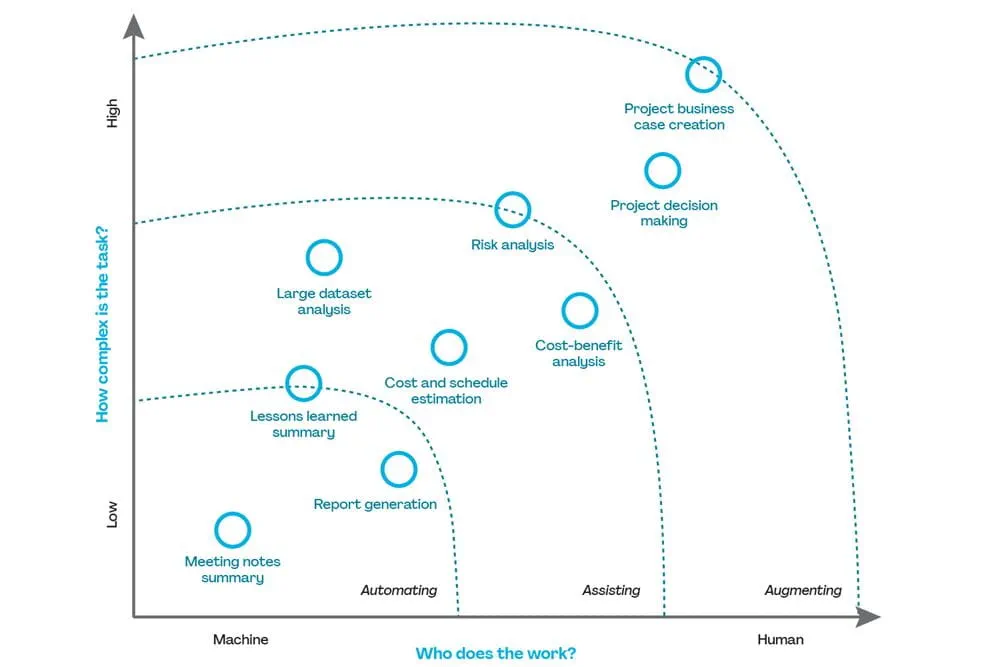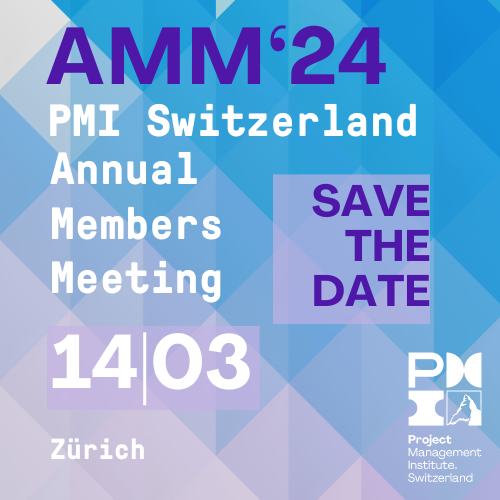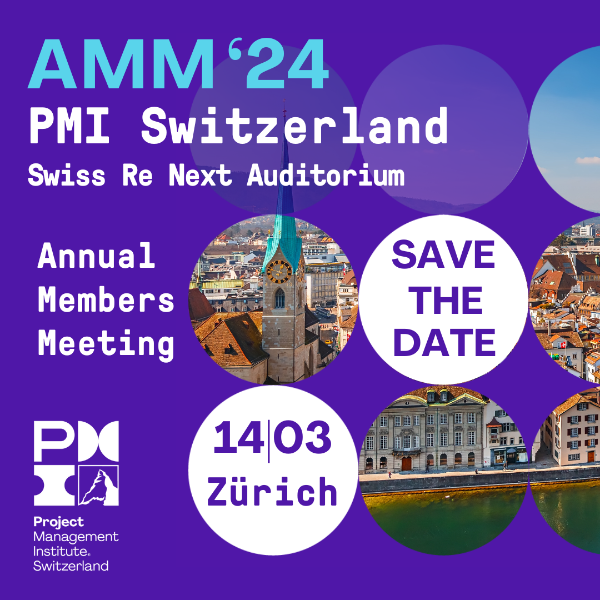An Interview with Claudia Alcelay, AMM 2024 Keynote Speaker
Author: Joanna Lubowiecka
Joanna: Hi Claudia, it’s great to have you here. As a first question, could you explain to us your story of AI journey in your professional career?
Claudia: Hello Joanna. I've been a project manager my whole life since I started working for the European Commission and helping companies in their transformation processes. Now at the Project Management Institute as Project Manager for Artificial Intelligence, I am in charge of integrating PMI Infinity, our AI-powered knowledge platform in our courses.
During all these years data and data-driven decisions have been part of my daily work, but I have to say that it was when I took the MIT training on AI applications to businesses that I realized that something big was here for the project management profession, a new dimension of data that I didn't consider before. After November 2022, when open AI´s ChatGPT was launched, many of my questions were answered and I started understanding how Gen AI could transform our everyday work as project managers.
Joanna: That's very interesting. I guess for everyone launching chat GPT was a big boom on a professional level.
Claudia: Chat GPT is an interface with a pre-trained model that answers any question you write, but, for many of us, it has been our first contact with Generative Artificial Intelligence to be used daily. It has shifted our relationship with Artificial Intelligence and has made it part of our lives. This has been an amazing moment.
Being that Chat GPT is a generalist tool, I want to highlight that for the project manager, PMI has launched the first Generative AI Knowledge Platform, to help project managers in their daily tasks.
Joanna: Sounds like PMI Infinity is a powerful platform useful for every project manager. Could you tell us what is so interesting about it?
Claudia: PMI Infinity is different from other GPTS in the market because we have our own instance, we have developed our own environment based on chat GPT 3.5 which is evolving towards GPT 4 turbo. PMI Infinity is powered by PMI sources which is a very important functionality because all the content provided is our own content. With PMI Infinity you eliminate or reduce hallucinations or inconsistencies. Furthermore, PMI Infinity always cites sources which gives you the chance of checking for credibility. Something that I also find interesting is that once you enter a prompt, PMI Infinity will suggest three alternative prompts, which helps you to dig even more into the topic.
PMI Infinity has been recently launched and our community is engaged in its evolution. We will see interesting things around PMI Infinity in the next months.
Joanna: Maybe now let’s take a step back and give some hints for the novices in project management and AI. For those who are aspiring to pursue their career in AI-driven projects, what skills and knowledge areas do you believe are essential for success?
Claudia: Traditional project management skills like communication, problem-solving, and managing people, among others, are becoming even more relevant than before. We have to be aware though, of other types of stakeholders that enter the field, like data scientists, data analysts, or data consumers. They are part of our ecosystems now and great allies to bring artificial intelligence into our teams, companies, and projects.
However, with the advent of generative AI and how it has entered our daily work, we need to develop new skills and get new knowledge. On one hand, we need to cultivate and nurture the skills of adaptability. It means looking around, listening, reading, sharing, and adapting. The lifelong learning approach is still very valid. It is crucial to be flexible and aware of changing technology and approaches that might twist from one day to another. We need to learn how to unlearn to cope with all those changes. Additionally, we as project managers need to understand the data and its flow as this is part of our projects and organizations’ strategy.
Joanna: Those are great tips Claudia. With the rise of AI in project management, how do you envision the collaboration between AI technologies and human expertise?
Figure 1 demonstrates the level of support GenAI can provide for specific project tasks, mapped along the dimensions of task complexity and degree of human intervention.

Picture source: https://www.pmi.org/learning/thought-leadership/ai-impact/shaping-the-future-of-project-management-with-ai
Claudia: Look at the picture I have shared here. The relationship that we will have with generative AI and data as project managers is going to be different according to the different tasks that we are going to do and according to our project management level. Firstly, generative AI is going to help us to automate some tasks such as filling meeting notes and preparing summaries or reports from different sources. Human intervention in this case is minimal. Secondly, generative AI will help in so-called assisting, where for example we want to make a cost-benefit analysis or cost and schedule estimation and here the AI can assist us with shaping the information or preparing the visual aspects. Thirdly, we need to mention augmenting, which means that the level of implication of the human in specific activities like developing a business case or project decision-making is going to be higher, with a lower Gen AI intervention.
Joanna: From your experience, what are the biggest challenges for project managers in the world of AI?
Claudia: I see two great challenges at this moment. The first one is the challenge of becoming AI value creators instead of AI users. The current stage of using AI tools is simply giving us more free time or better-quality time to devote ourselves to activities more valuable for our companies. But we need to go a bit further. Instead of being AI tool users, we need to be AI value creators. This means the ability to identify in our projects which parts can be integrated or tackled from an AI perspective, to be able to create cases. This is a great shift that we are already seeing in our community. The second challenge is to be able to leverage our project management skills and knowledge to be key actors in our companies. Technology is still a means, let’s understand it, fill any knowledge gap that we might be encountering, and be ready to adapt. But above all, bring to the scene all your knowledge and skills.
Joanna: You just mentioned that we shall be not only users but also creators in AI world. How can professionals transition from being passive users to proactive contributors?
Claudia: This must be incremental. AI is here to stay and is here for us. It's not going to disappear. If you are new to Gen AI, I would start trying different AI applications in any domain you like even if they are not related to PM. Playing with them will make you feel more comfortable in this environment.
Then, you can try to apply AI tools to everyday tasks in your projects like summarizing, generating pictures, and translating… and see how you are feeling.
As a next step, I would see how I as a project manager can work together with data people to improve our data-driven decisions and thus, our projects. I would make myself relevant. Project managers have a lot to say in this new AI era.
Additionally, I would share anything that I discover with the community, with my colleagues. I would go to communities like PMI where you can learn a lot about other project managers having the same issues as you are. A great place to start.
Community link: Artificial Intelligence https://www.projectmanagement.com/topics/artificial-intelligence/
Joanna: I really appreciate the insights you shared with us. We are excited to host you at our AMM 2024 event and cannot wait for the speech you will present.




